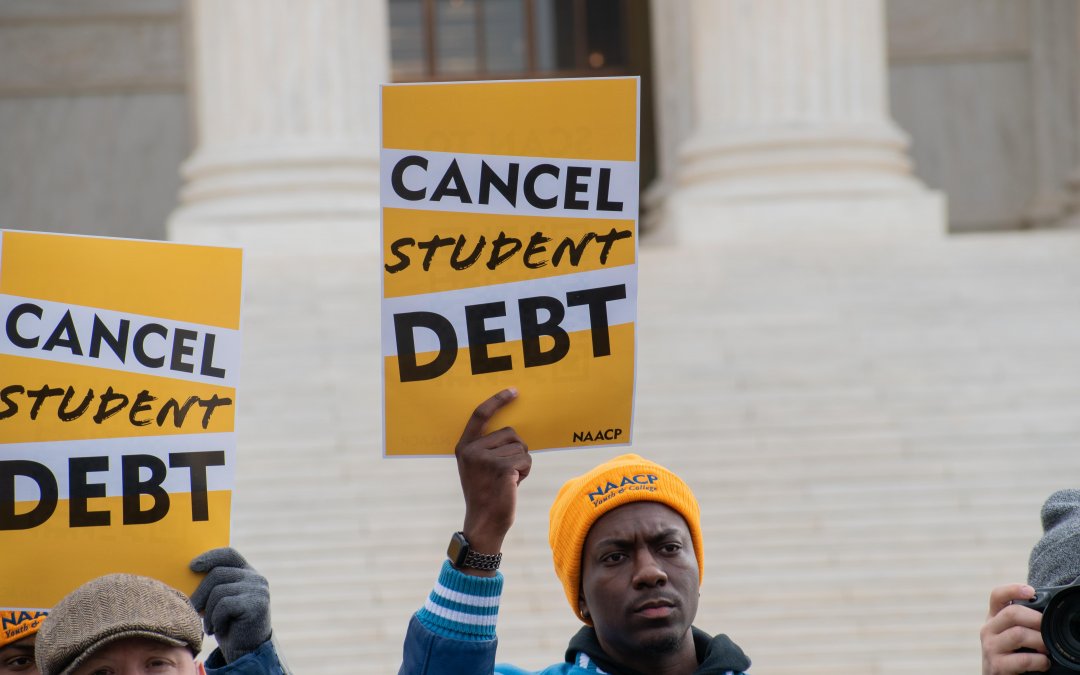WASHINGTON — The Supreme Court heard oral arguments Tuesday for Biden v. Nebraska, a case which challenges President Joe Biden’s plan to forgive up to $20,000 for those with federally held student debts.
The case looked at two major issues: standing and merit.
The first questioned whether the respondents, in this case the six Republican-led states suing, had standing to challenge Biden and Secretary of Education Miguel Cardona for their loan forgiveness plan.
In other words, if Cardona’s plan caused injury to these states, it gave the states the ability to challenge it.
To that end, the arguments largely focused on whether or not the states had standing. Nebraska Solicitor General James Campbell said that the Missouri-based entity MOHELA, which the state argued suffered financial losses due to the program, gives the states standing.
Video by Julia Narvaez Munguia/MNS
But some Justices argued that MOHELA could have filed its own lawsuit but decided against it. Notably, Trump-appointed Justice Amy Coney Barrett said she didn’t understand why the states stood in for MOHELA in the lawsuit.
“If MOHELA is an arm of the state, why didn’t you just strong-arm MOHELA and say you’ve got to pursue this suit,” Barrett said.
If the Justices agree the states have no standing, the case would be thrown out before getting to the second issue of merit.
Cardona’s plan to forgive loan debt hinges on the Higher Education Relief for Students Act, which gives the executive branch authority to provide emergency relief without express authorization from Congress if it modifies or waives existing protocols.
Campbell said that Cardona’s loan forgiveness does neither of these things, but instead creates a “breathtaking and transformative power beyond [the secretary’s] institutional role and expertise.”
Justice Ketanji Brown Jackson said that she wasn’t clear on the distinction between creating a power and modifying or waiving one.
“Why doesn’t it all reduce to the same thing?” Brown said.
It’s unclear how the Court, which is led 6-3 by conservative Justices, will rule. Some experts believe that Biden does not have much of a case on the merits, while others argue the states have no standing to sue the federal government.
But the program has broad sweeping implications for millions of current and former students who have borrowed money from the federal government. Over $400 billion in federal loans would be forgiven should the Court decide against striking down the program.
“There’s 50 million students who will benefit from this, who today will struggle,” Justice Sonia Sotomayor said. “Many of them don’t have assets sufficient to bail them out after the pandemic. They don’t have friends or families or others who can help them make these payments.”
A ruling against Biden’s plan could invite further suits by Republican-led states that would impact all kinds of future executive actions. It’s why the courts may decide to focus on the first issue of standing, which would help avoid questions of the Biden administration’s authority going forward.
“What you’re saying is now we’re going to give judges the right to decide how much aid to give them instead of the person with the expertise and the experience the secretary of Education who’s been dealing with educational issues and the problems surrounding student loans,” Sotomayor said.


